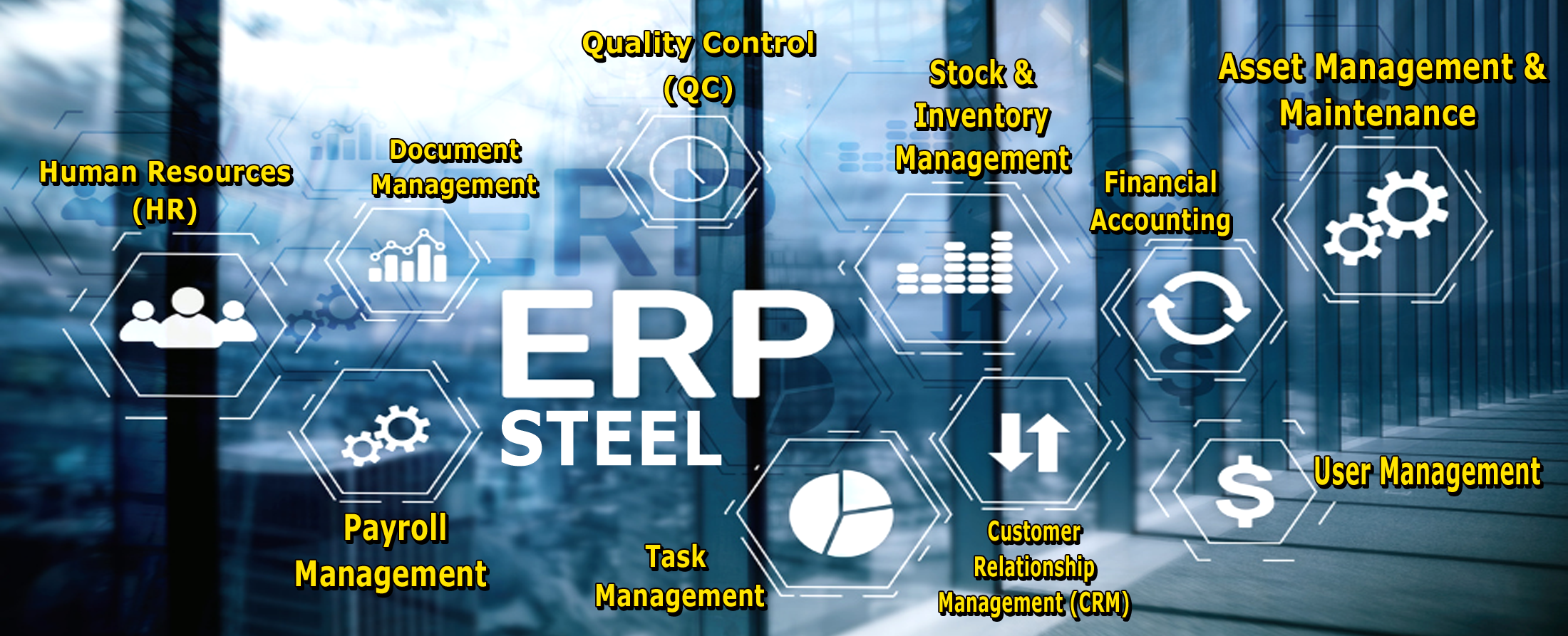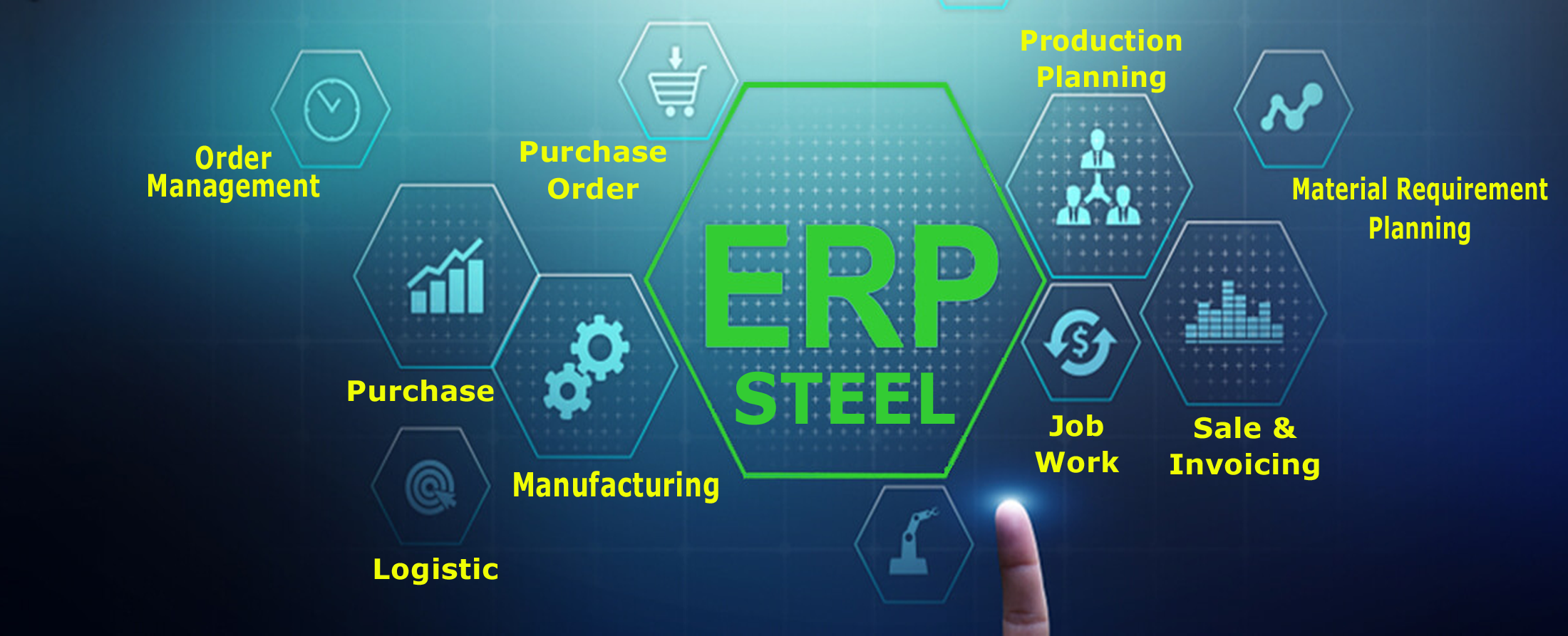About ERP
An Enterprise Resource Planning (ERP) system in the steel industry is a comprehensive technology-driven solution for integrating production planning, inventory, logistics, and other core areas of steel manufacturing.
With automation, traceability, and real-time analytics, our software adapts to your workflows whether you're a growing company or a major steel supplier. From raw material purchase to finished product delivery, all processes are included. Here’s a breakdown of the key aspects of ERP in the steel process.
Key Benefits of Implementing ERP in the Steel Industry
Improved Production Efficiency: Streamlining production schedules, monitoring performance, and optimizing resource utilization.
Optimized Supply Chain Visibility: Improve coordination with suppliers and minimize lead times through end-to-end transparency.
Accurate Inventory Management: Maintaining optimal stock levels to reduce costs associated with overstocking or stockouts.
Live Data Intelligence: Empower departments with a unified platform offering real-time insights for strategic decisions.
Efficient Cost Control: Tracking production costs, managing budgets, and identifying areas for cost reduction.
Improved Collaboration: Enhancing communication and coordination between different departments.
Enhanced Forecasting & Planning: Leveraging historical trends and advanced analytics to optimize demand prediction and production scheduling.
Enhanced Quality Control: Integrating and monitoring quality processes to ensure product standards.
Automated Compliance: Ensure regulatory alignment with simplified, real-time reporting. . Reduced Errors: Automating tasks to minimize manual errors in data entry and processes.
Agile Response Capability: Enhancing the organization’s ability to react swiftly to market fluctuations and client expectations.
Core Modules in ERP Steel
Raw Material Procurement
Managing suppliers, purchase orders, and acquiring iron ore, coal, scrap metal, and other necessary materials.
Inventory Management
Tracking raw materials, semi-finished goods (like slabs, billets, blooms), and finished products in real-time to optimize stock levels and reduce waste.
Production Planning and Scheduling
Creating efficient production schedules based on sales orders, material availability, and equipment capacity. This includes overseeing the implementation of both conventional (blast furnace) and modern (electric arc furnace) steel-making processes.
Sales and Order Management
Managing customer orders, pricing, sales contracts, and delivery schedules. Managing logistics and distribution: To ensure timely and cost-effective transportation of finished goods.
Manufacturing Execution
Ensuring smooth shop floor operations by monitoring machines, tracking work progress, and upholding strict quality control.
Quality Control
Integrating quality checks at various stages of production to ensure adherence to standards and specifications.
Warehouse Management
Overseeing the storage and movement of materials within the plant and warehouses. . Comprehensive financial oversight: Including budgeting, accounting, expense management, and compliance reporting.
Human Resources
Managing employee data, payroll, and workforce scheduling.
Maintenance Management
Scheduling and tracking maintenance of equipment to minimize downtime.


